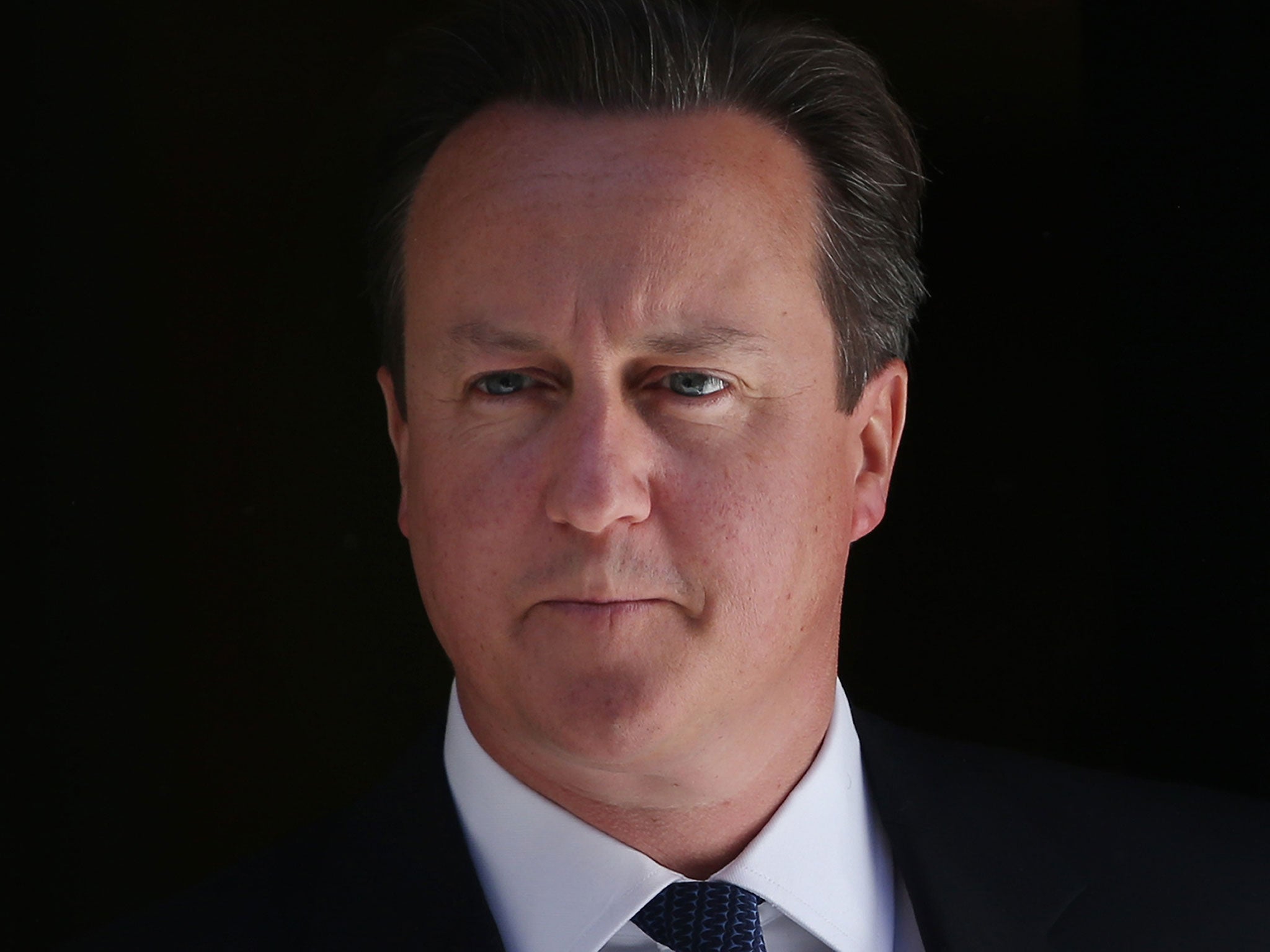In which I find myself willing the PM to succeed
To my surprise David Cameron seems to be attempting the impossible on immigration


David Cameron was in electioneering mode last week and, although the next election is nearly two years away, I could see how he might win it. He held a question-and-answer session in the Bentley factory in Crewe. He was there, in a constituency won by the Conservatives in a by-election in 2008, for the announcement by VW, Bentley's owner, of a new model that would create 1,000 jobs. Cars, and especially luxury cars, are a great British success story. The white and pink Bentleys gliding down the spotless production lines are destined for the Gulf, for California and for princelings in China.
Two of the questions from the workers were interesting. Cameron was asked about his "weak" immigration policy by a young man who said: "We're working hard but these people are coming in." It wasn't clear whether he thought immigrants were taking British jobs or claiming British benefits. Either way, Cameron said, "Basically, I agree with you," and explained that the Government had shut down 130 bogus colleges. He said he hoped that, by the election, people would say, "You may not have solved the whole problem, but you have been tougher."
Most of the workforce at Bentley seemed to be British, but that is not the case in other places the Prime Minister has visited. Last year he opened an Amazon fulfilment centre in Hemel Hempstead, where 60 per cent of the workers are from central Europe. The "free movement of workers" throughout the EU, enshrined in the Treaty of Rome and its successor treaties since 1957, has come to seem to most British voters as more of a problem than an opportunity.
Other workers at Crewe see Europe as a source of job security. Another questioner was worried that "policy seems to be withdraw further from EU". That was Cameron's balancing act. The way he dealt with it revealed a little of a big shift that is going on underneath the day-to-day politics of what Lynton Crosby said to him and whose fault it is that patients are backed up in ambulances outside A&E. Cameron replied that, "frankly, consent for the EU is wafer thin", and that was why he wanted a referendum after renegotiating the terms of our membership. He didn't think the promise of a referendum caused uncertainty – the German investment in Crewe was evidence the other way. But he did think, "There is a problem and I'm going to fix it."
Recent conversations with people in No 10 have brought home to me the scale of Cameron's ambition to recast our relationship with the EU. Where British leaders since Ted Heath have seen "free movement of workers" as either desirable or unavoidable, he sees it as a problem he is "going to fix".
He accepts the argument that, while places such as Amazon's are employing a minority of British citizens, the chances of getting those citizens off welfare and into work are diminished. And he said, at the Tory party conference last year, that free movement of workers would be included in the Government's review of EU competences, which is being carried out to prepare for renegotiation.
I had assumed that this was mainly for show, but I am told that José Manuel Barroso, the EU Commission President, told Cameron that he accepts that he will be looking at free movement. This goes beyond the current attempt to tighten up the "habitual residence test" before Bulgarian and Romanian workers acquire the right of free movement in January. And it goes beyond last week's call by Matthew Hancock, the junior minister, for companies to employ British workers rather than taking the "easy option" of hiring foreigners.
No 10's confidence has been enhanced by the response of EU leaders to Cameron's speech in January in which he set out his plans for renegotiation and referendum. Angela Merkel of Germany, Enrico Letta of Italy, Fredrik Reinfeldt of Sweden and even "to an extent" François Hollande of France are all said to be receptive to renegotiation (although No 10 defines this as not telling Cameron to get lost). It is true that no one has objected to Cameron's boldest proposal in that speech, a treaty amendment to exclude Britain from the objective of "an ever closer union among the peoples of Europe", which, like free movement of workers, has been in the sacred texts since 1957. Indeed, the Dutch government said last month that it too thought that the time of "ever closer union" in all areas was "behind us".
How Cameron is going to achieve such big changes I don't know. Rewriting treaties is a perilous business, the work of several years, in which each of 28 countries has a veto. But he thinks he can do it. He has told ministers that he is not Harold Wilson and, referring to Wilson and James Callaghan's cosmetic renegotiation before the 1975 referendum: "We can do better than that."
Somewhat to my surprise, David Cameron seems to be attempting the impossible and I find myself willing him to succeed.
Equally, the steady focus on people who work hard and want to get on, however irritating the phrase, seems a sound basis on which to fight the election. Ed Miliband ought to be much more worried than he seems.

Join our commenting forum
Join thought-provoking conversations, follow other Independent readers and see their replies